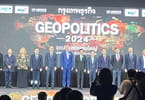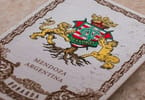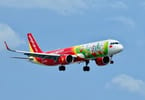Global Blue (the tax free shopping system), periodically analyzes purchases made by foreign tourists in Italy to monitor tourist flows.
The research was presented by Federturismo (The Italian Federation of Tourism) on the occasion of the annual meeting of the Parliamentary Observatory for Tourism, chaired by Ignazio Abrignani (lawyer and member of the Chamber of Deputies of the Italian Republic) on the theme “New challenges of Italian tourism.”
Gian Marco Centinaio, (the present minister in charge of Tourism) who in recalling the recent presentation of the 3-year ENIT plan, the full operation of the Tourism Department at Mipaaft (Ministry of Agricultural, Food, Forestry, and Tourism Policies) and the Law-Delegation to Tourism (it deals with the revision and update of the tourism code as well as the harmonization with the European law of tourism legislation) approved in the Chamber, highlighted that the sector can finally count on an “institutional context ready to play its part alongside (tourism) businesses, considering the tourism industry as the true engine of the country.”
Regarding the (joint) Global Blue-Federturismo Observatory, the first data of this research on the January-June 2019 period revealed a 12% increase in tax-free sales in Italy, a doubling digit compared to the first semester 2018.
The prevailing Italian markets are: Northern Italy ( 59%) and Center (39%) while South and Islands recorded only 2%. The nationality of the main buyers: the Chinese excel with an average expense of 1,167 euros, followed by the Russians with a share of 11% on the total and by the Americans (10%).
The supremacy of the average tax-free shopping carried out by International travel buyers indicates: Turin leads the most visible growth in tax free sales (+ 48%) and an average expenditure of 1,330 euros, Milan with 36%, and Rome (21% ), Florence (10%), and Venice (6%). Verona and Bologna rank among the emerging areas in the Italian incoming shopping rating.
The call of the Mediterranean culture and the hospitality of Southern Italy has proved irresistible for international tourists. In this area, Tax Free Shopping increased by 22% in the first 6 months of 2019 vs. 2018. Globe Shopper’s average expenditure was 986 euros (+ 21%). Palermo is a leader in tax-free purchases, with an average expenditure of 1,362 euros, were in the first half of 2019 tax-free purchases almost doubled (+ 48%).
The first nationality in terms of spending: tourists from China (48% of the total), average expenditure 2,422 euros, followed by Russians (10%), and the US (9%). Naples: tax-free sales reported an increase of 37% vs. January-June 2018, with an average receipt of 1,218 euros.
In terms of nationality, on the podium are the Chinese travelers (30% of total sales), followed by the USA citizen (15%), and Russians (11%). In Capri, emerge mainly travelers from the United States (34%), Taiwan (10%), and China (10%). Here the market of free shopping tax registered in the period January-June 2019 a + 13% compared to the first half of 2018, with the value of the average receipt that reached 1,194 euros.
Gianfranco Battisti, president of Federturismo and managing director of Ferrovie dello Stato (Fs), expressed his satisfaction with the results and called for the maintenance of these primates by means of a centralized monitoring system that provides for adequate training and a commitment to improve the shortage quality of the structures and infrastructures dedicated to tourism.”
Battisti specified, “The Fs Group is engaged in improvements in the sector especially in terms of accessibility and redistribution of tourist flows even in smaller towns through the 252 railway connections activated for the 2019 summer season which also reaches smaller goals, and the intermodality that is making progress high-speed connectivity with the main Italian airports.
“But not only that, there are also other Fs investments on slow tourism, with historical trains that gather growing consensus among Italian and foreign tourists and on sweet tourism with the exploitation of part of the 4,000 kilometers of disused railway lines to be dedicated to cycling tourism and to hiking.”
Comments of the Associations
A search by Confturismo based on the levels of trust and satisfaction of foreign tourists regarding the destination Italy, presented by its president Luca Patanè, indicates an irresistible appeal of foreign tourists towards Italy – this despite certain infrastructural inadequacies, quality gaps in resources, and delays in higher education. “We must accelerate to fill the most penalizing deficits and exploit decidedly positive feelings towards the ‘Italy brand,’” said Patanè.
The concept of urgent action was shared by the president of Assoturismo, Vittorio Messina, who explained how “the challenge of Italian tourism is essentially one: consider tourism as a sector. Until now, tourism has been considered as a driving force for services, or trade, but never as an economic sector in all respects.
“Only with this perspective can we articulate an overall legislative design.” The time has come for Messina to act urgently and for the government “to believe in it and invest in the unified promotion of the Italian territory.”
The high influxes of tourists in Italy in recent years may record a turnaround with a decrease in tourist numbers in 2019. The tourism sector must take measures and act in advance, together.
“The Italian regions will have to take a step back and accept the ‘Brand Italy mission’ with a homogeneous promotion,” Giorgio Palmucci added.
WHAT TO TAKE AWAY FROM THIS ARTICLE:
- Gian Marco Centinaio, (the present minister in charge of Tourism) who in recalling the recent presentation of the 3-year ENIT plan, the full operation of the Tourism Department at Mipaaft (Ministry of Agricultural, Food, Forestry, and Tourism Policies) and the Law-Delegation to Tourism (it deals with the revision and update of the tourism code as well as the harmonization with the European law of tourism legislation) approved in the Chamber, highlighted that the sector can finally count on an “institutional context ready to play its part alongside (tourism) businesses, considering the tourism industry as the true engine of the country.
- The research was presented by Federturismo (The Italian Federation of Tourism) on the occasion of the annual meeting of the Parliamentary Observatory for Tourism, chaired by Ignazio Abrignani (lawyer and member of the Chamber of Deputies of the Italian Republic) on the theme “New challenges of Italian tourism.
- Gianfranco Battisti, president of Federturismo and managing director of Ferrovie dello Stato (Fs), expressed his satisfaction with the results and called for the maintenance of these primates by means of a centralized monitoring system that provides for adequate training and a commitment to improve the shortage quality of the structures and infrastructures dedicated to tourism.






















